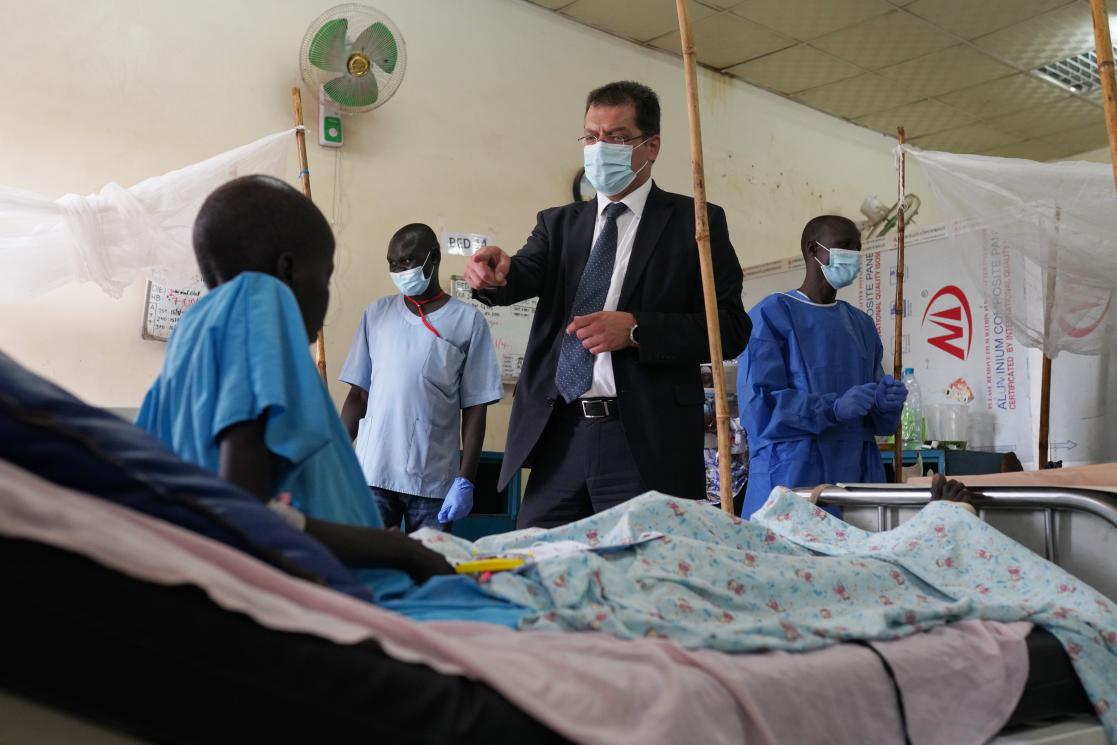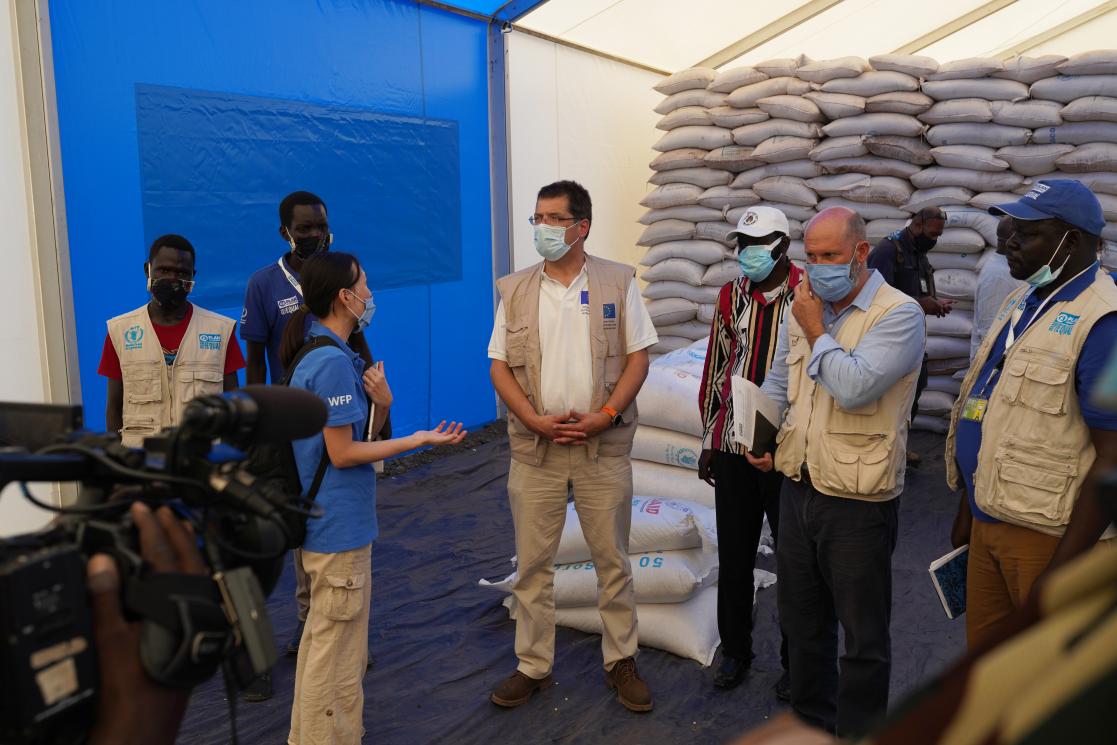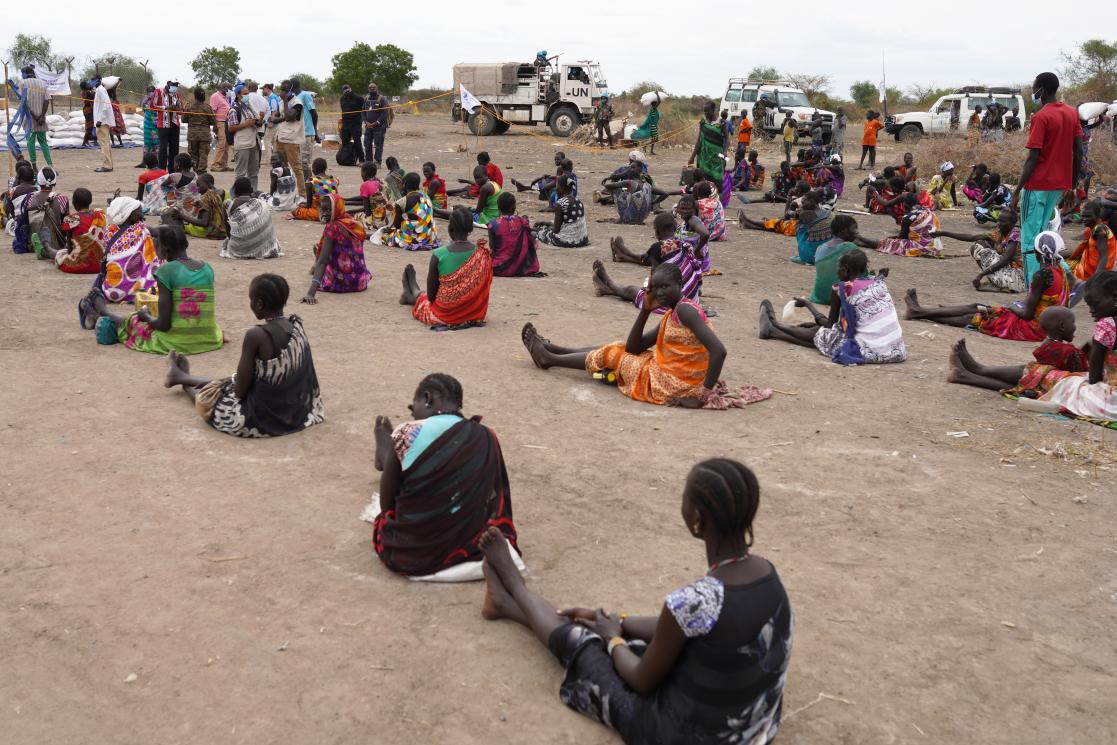Aid alone will not solve South Sudan’s problems – EU Commissioner Lenarčič

Janez Lenarčič, European Union Commissioner for Crisis Management addressing the press in Juba on Thursday.
The humanitarian situation across South Sudan is so dire that aid alone will not resolve the situation, the European Union Commissioner for Crisis Management has said as he wound up his two-day visit to the youngest nation.
Addressing the press on Thursday in Juba, Mr Janez Lenarčič said many parts of the country are facing famine-like conditions and pondered why the international community’s interest in South Sudan is dwindling.
“The situation in the country is difficult, critical and all we international donors need to scale up our humanitarian assistance, but at the same time the government of South Sudan should do its part by swiftly making further progress in the implementation of the peace agreement,” Mr Lenarčič said.
“Humanitarian aid alone will not solve the situation. We need to break the circle of year-in year-out deterioration, violence and natural disasters. We need to address the root causes of conflict and provide mid- and long-term solutions. It’s imperative for peace to succeed.”

Janez Lenarčič, on the right, is talking to a child who is a patient at the Military Hospital, supported by ICRC, in Juba.
According to Mr Lenarčič, South Sudan as a whole is bracing itself for the worst food crisis ever. “Only five donors, including the European Union account for almost 77% of the total aid to South Sudan. This lack of interest risks turning this already disastrous situation into a forgotten crisis,” he warned.

Janez Lenarčič, in the center, at the World Food Program (WFP) warehouse in Pibor, South Sudan.
The European Humanitarian chief however announced a new funding of €43.5 million in humanitarian aid to South Sudan to provide multi-sector relief, including protection and food assistance, to those affected by human-made crises and natural disasters.

Joshua Konyi, administrator of Greater Pibor Administrative Area, on the left, and Janez Lenarčič, in Pibor, South Sudan.
While in the country, Mr Lenarčič met both President Kiir and his deputy Dr Riek Machar, with whom he discussed the peace process, met civil society activists, humanitarians, aid beneficiaries, and visited some EU- funded programmes in Pibor and Likuangole (Jonglei) and Central Equatoria States.
Mr Lenarčič is the first member of the EU executive body to visit South Sudan since 2015.

World Food Program (WFP) general food distribution site in Likuangole, South Sudan.





